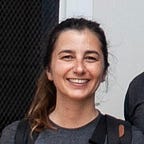Stand and deliver: 10 years of the global Food Security Cluster
World Food Programme and Food and Agriculture Organization join their partners to mark a decade of collaboration
Last week in Rome, the global Food Security Cluster — of organizations working to move humanitarian workers, and food assistance around the world — marked its 10th anniversary at a Global Partners meeting with a virtual meeting of 200 participants.
Spearheaded by the Food and Agriculture Organization of the United Nations (FAO) and the World Food Programme (WFP), the Food Security Cluster (FSC) enables a range of partners, globally and at country level, to deliver life-saving food and livelihoods assistance in more than 30 countries.
In their opening remarks, FAO Director-General QU Dongyu and WFP Deputy-Executive Director Amir Abdulla, highlighted the Cluster’s critical role in amplifying the voices and priorities of frontline responders, especially at a time of significant disruption for the world, compounded by an unprecedented global health crisis.
“FAO and WFP ensured that food security became one of the cornerstones of the global response to the pandemic and peacebuilding,” said FAO’s Dongyu.
The COVID-19 pandemic exacerbated the need for the FSC leadership to strengthen the coordination of partners’ response, which led to the creation of a technical working group with more than 100 members from 38 organizations working together to prevent the further deterioration of acute food insecurity.
In collaborating with both UN and NGO partners, as well as governments across the world, Abdulla said WFP was committed to “delivering the best that we can to people in need”.
He added: “Ahead of us are new challenges and unprecedented needs, and the need for us to continue leveraging our innovation, our technology but above all our ability to coordinate our efforts.”
Bruno Minjauw, global Food Security Cluster Coordinator, and Naouar Labidi, Senior global Food Security Adviser, presented the Cluster’s achievements for the past 10 years and the challenges ahead, emphasizing an increasing demand for coordination.
The two-day virtual meeting had several notable speakers, from UN organizations, NGOs and academia, covering a variety of topics including the current compounded threats of conflict, economic decline and climate shocks.
Early warning and preparedness activities were one of the leading themes of the global meeting. Jan Egeland, Secretary-General of the Norwegian Refugee Council (NRC) — one of the eight members of FSC’s Strategic Advisory Group, stressed the need for real-time, accurate data collection and assessments tools.
Egeland also highlighted the need for better communication with the affected communities themselves, as their continuous feedback is a fundamental requirement to improve our response. On this subject, Daniel Maxwell, Director of the Food Security and Livelihoods in Complex Emergencies Research Program from the Tufts University, affirmed the need for anticipatory conflict action and early intervention. However, Maxwell added, it “requires not only predictive capacity and financing but also good contingency planning and especially the capacity on the ground to implement contingency plans”.
On climate change, Philip Thornton, Honorary Professor of the College of Science and Engineering, University of Edinburgh, outlined the impact of climate variability on hunger and economic stability and its different scales, from rainfall variability, livestock production to rural labour capacity. In line with previous speakers, Thornton mentioned a need for “more effective use of early warning systems, weather forecasts and risk management tools, as well as using novel and near ready information and communication technologies to enhance monitoring and forecasting analysis”.
The meeting concluded with the Strategic Advisory Group elections results — Julie Mayans and Joanne Grace are the newly elected members representing Solidarités International and Save the Children.
Final closing remarks were delivered by Margot van der Velden, WFP Director of Emergencies and Daniele Donati, FAO Deputy Director, Office of Emergencies and Resilience.
Both organizations expressed gratitude for the FSC and its network of partners around the world and their unwavering commitment to ensure the most vulnerable people have access to food.
Van der Velden underlined how “COVID-19 is making our work even more complex.” She added that the Food Security Cluster requires US$ 9.2 billion to reach 100 million people. Nevertheless, “in the face of new challenges, we have improved our data monitoring and collection tools which are vital for us to truly understand the needs of the communities we serve and to better adapt our response.”
Wrapping up, FAO’s Daniele Donati spoke of reinforcing “the commitment to ensure humanitarian coordination not only continues but goes hand in hand with developing a sustainable path to resilience and zero hunger.”
The Food Security Cluster (FSC) aims to enhance cooperation and partnerships. The FSC works directly with its partners and stakeholders that include NGOs, the Red Cross and Red Crescent Movement, UN organizations, Governments and Donors.
FSC has been established in 2011 to coordinate the food security response during a humanitarian crisis, addressing issues of food availability, access and utilisation. The Cluster is based at WFP headquarters in Rome and is co-led by FAO and WFP.
